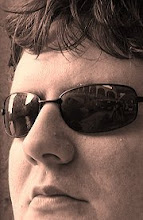The leading European sports betting web site, bwin, gives the following predictions concerning final victory of this World Cup (hereafter "WC"). According to their bookies, the top 4 teams most likely to win are Spain, Brazil, England, and Argentina, in that order. The least likely instead are Japan, Honduras, North Korea, and New Zealand, whose chances of winning the WC (or, really, any game) is just a tad better than my chances of dating Ellen Page. The reigning world champions, Italy, are quoted at just below Argentina and at just a notch above Germany, France, the Netherlands, and Portugal, which round up the "usual suspects." The number-one outsider to watch out for is certainly Ivory Coast, this year's highest-ranked African team (aside from Egypt, who however didn't make it to the WC).

First impression: nothing new under the sun. One cliche especially seems vindicated, viz. that the World Cup is almost always a European cup. Four years ago, in Germany, all four semifinalists were European. The first semifinal, Germany-Italy, had been a historic semifinal in 1970 (the best WC game of all) and a one-sided final in 1982. The final, Italy-France, had been a key quarterfinal in 1998 and the thrilling 2000 European Cup final, both decided by nerve and luck more than talent (as in 2006, after all). Rivalries are deeply rooted, there are hard feelings, and the World Cup--much like the so-called World Wars--is often an intra-European incestuous affair.
There are, of course, two very notable exceptions, Brazil and Argentina. They won five and two WCs respectively, over a third of those played so far (the remaining 11 are divided among just five teams, four of which European: Italy 4, Germany 3, France and England 1 each; the other is Uruguay 2, who however hasn't been any good since the 1950s). That widens the field a bit and keeps things interesting, especially given the other well-known cliche in football: "Brazil can lose only to itself," which is to say they're so good that if they don't sweep it, something odd must have happened. When my Dad was young, Italian sports editor Gianni Brera often said that Brazil's only obstacle to absolute dominion was the unwavering belief in its own supremacy, which resulted in sloppy defending on the pitch and wild partying and sexual habits behind the scenes. Well, the former issue is no more, thanks to a great defensive lineup including the likes of Lucio, Alves, Maicon, Juan, and Julio Cesar, all the world's best or near-best in their respective roles. The latter problem, "thankfully," still plagues them, so we might just see some actual competition!
But what of the rest? Where's the "world" in the World Cup? It seems sorely lacking. FIFA must have noticed this, given its choice of WC locations lately. Prior to 1994, the WC had always been played either in a major European or South American country, where by "major" I mean countries with prevailing and long-enduring football traditions and whose national teams were by and large successful on the international scene. Then we had USA 1994, Japan-South Korea 2002, and now South Africa 2010. This is not a complete trend change: we still did have France 1998 and Germany 2006, and it will be back to Brazil in 2014 (oh how momentous will that one be!) But the outreach program seems to be working. While the Asian WC was a failure by almost any standard, the American one was quite a success and greatly strengthened the rise of football/soccer in that country.
This brings me to my main point: the World Cup, much like the Olympics, has an important cultural component that is often overlooked. Football is by far the world's most popular and most widely played game. This means it's deeply ingrained in the culture of very many countries, almost regardless of their teams' international proficiency. It follows, then, that with every WC follows a clash and meeting of cultures, and the venue becomes extremely relevant. The choice to have minor countries (in the same sense as above) like Japan, USA, and South Africa host three of the last five WCs is only partially an attempt to bring football where it's least popular. It's also and primarily an attempt to bring cultural exchange where it's least popular. Korea/Japan and South Africa are about as exotic to us Westerners as anything else, and of course the whole world is exotic to Americans, whose isolationism has deprived them of much more than just football. If any country needs to know and be known by us all, it's the post-apartheid South Africa, with its fascinating blend of African and European lifestyle (and, of course, with all the work that still needs to be done).
Needless to say, this sports-based attempt at cultural exchange has nothing to do with game scores and winners, nor must it. Chances are that South Africa and all minor teams will go out early on and that the round of eight will again be an affair between Europe and South America. Sure would be nice if it were otherwise, but only if it were deserved. In 1990, Cameroon got to the quarterfinals thanks to their sparkling game (and some luck) and nearly knocked England out, losing only to their own inexperience. In 1994, Nigeria was arguably the tourney's best team, again only losing in the quarters against an Italian team barely balanced on Baggio's strong little shoulders (such bittersweet irony that he, of all players, would miss the decisive penalty against Brazil in the final not ten days later). But then, in 2002, the home team of South Korea got as far as the semifinals quite undeservedly and with much help from referees and a very complacent organization committee. That's not the way to promote football, cultural exchange, or anything else. This isn't politics. In the Beautiful Game there are no "rights" or "dues." The ball is round and goes where it's kicked, so if a team deserves to lose, it's fair if it loses and unfair if it wins. Therefore, I hope to see a fair WC this year. African football hardly needs any help to rise, after all, since in fifteen/twenty years' time it will easily come sleep in the big bed along with Europe and South America, and on its own merits.
To conclude, I (and I think everybody else) hope to see a World Cup that's fair and fun, filled with all the usual folklore and drama on and off the pitch. We don't expect to see great football; the world's most important tourney is a showcase of nerve and strength much more than of skill, especially coming as it does at the end of a long football season for many of the players involved. But there will be plenty of sensation to make up for it, and the purpose of this blog is to discuss all that--and if you've seen WCs before, you know there will be A LOT to talk about in the coming month!






